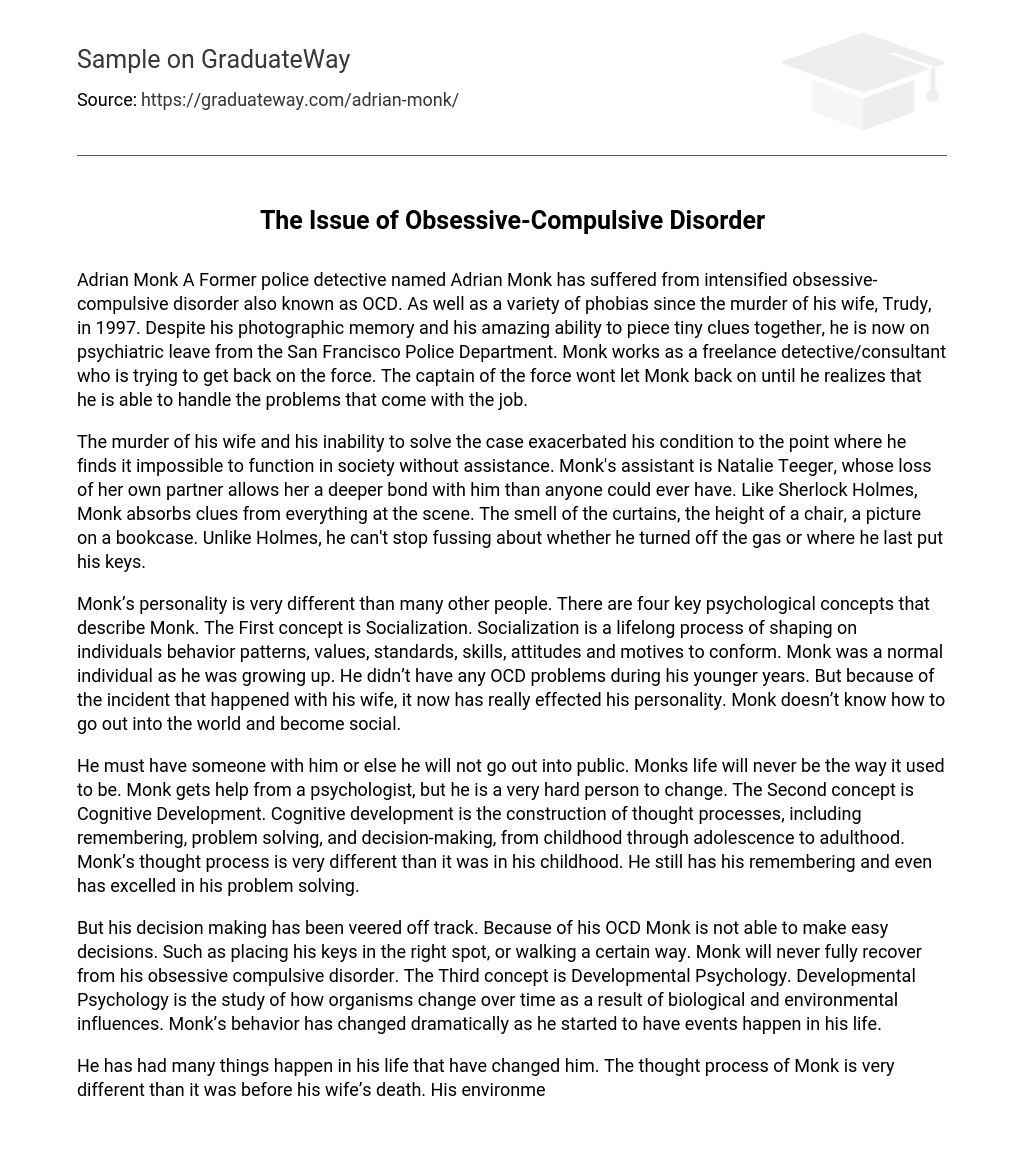Adrian Monk, a former police detective, suffers from intensified obsessive-compulsive disorder (OCD) and various phobias after his wife, Trudy, was murdered in 1997. Despite his exceptional memory and skill in linking small clues together, Monk is currently on psychiatric leave from the San Francisco Police Department. He now works as a freelance detective/consultant to try and get back into the force. However, the police department captain won’t reinstate him until he proves he can effectively handle the job’s challenges.
The murder of Monk’s wife worsened his condition to the extent that he cannot function in society without help. Natalie Teeger, Monk’s assistant, connects with him on a deeper level due to her own loss of a partner. Similar to Sherlock Holmes, Monk gathers clues from every detail at the crime scene, such as the aroma of the curtains, the chair’s height, or a picture on the bookcase. Unlike Holmes, Monk cannot cease his worries about turning off the gas or misplacing his keys.
Monk’s personality can be characterized by four psychological concepts, deviating from the norm. The first concept is socialization, which involves the continuous development of an individual’s behavior patterns, values, standards, skills, attitudes, and motivations to conform to society. Initially, Monk had a conventional personality without any indications of OCD. However, after experiencing a traumatic event involving his spouse, there was a profound change in his ability to engage with others and participate in society.
Monk’s life has permanently changed and he now only ventures out in public with a companion. Despite seeking assistance from a psychologist, altering his behavior remains difficult. Another relevant notion is Cognitive Development, which encompasses the maturation of mental processes such as memory, problem-solving, and decision-making from childhood to adulthood. Although Monk’s thinking has significantly evolved since his early years, he still retains his capacity for memory and has even exhibited exceptional skills in solving problems.
Monk’s OCD has hindered his ability to make decisions, causing difficulty in determining where to place his keys or how to walk. It is improbable for Monk to fully overcome his OCD. Additionally, Developmental Psychology studies the evolution of organisms over time due to biological and environmental factors. Monk’s behavior has clearly undergone significant changes as a result of various events he has experienced.
The various life events have caused a transformation in him. The passing of his wife has greatly impacted Monk’s thinking. Additionally, being on the police force has played a significant role in shaping his character. Lastly, there is ongoing debate about the impact of nature (heredity) and nurture (environment) on behavior and mental processes known as The Nature-Nurture Interaction.
According to the text, Monk’s Obsessive-Compulsive Disorder (OCD) did not originate from birth but was rather a result of his environment. Following his wife’s death, his OCD escalated and became more challenging to handle. This distressing event significantly influenced his mental well-being, making it difficult to address this matter effectively. In summary, Monk’s psychological condition is highly relevant to Socialization, Cognitive Development, Developmental Psychology, and The Nature-Nurture Interaction.
They provide descriptions of Monk’s personality, problems, and behavior. The first concept, Socialization, pertains to Monk’s social interactions with others. The second concept, Cognitive Development, explores his growth and development from a young age. The third concept, Developmental Psychology, discusses Monk’s progression as he has aged. Lastly, The Nature-Nurture Interaction delves into the origins of Monk’s behavior and how it is influenced.





